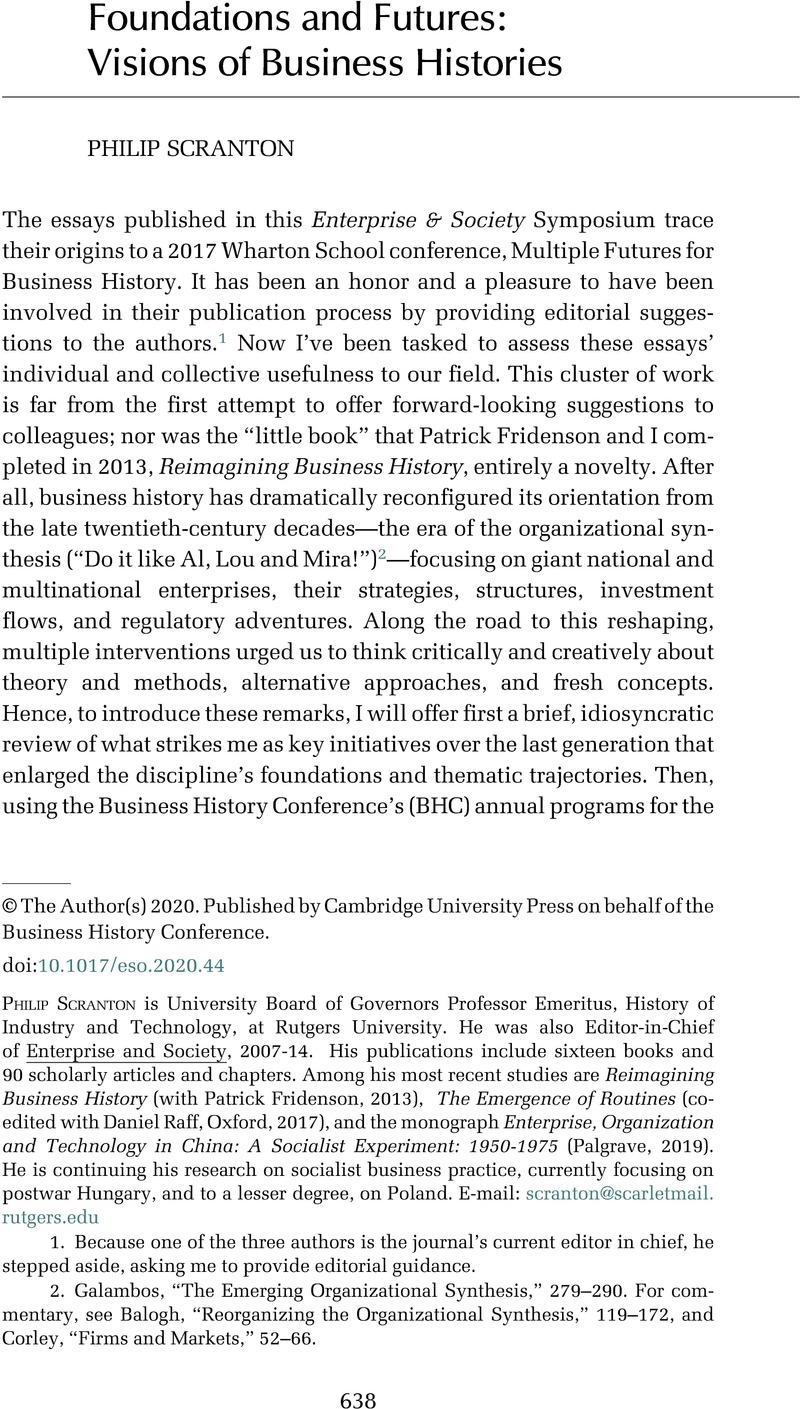Crossref Citations
This article has been cited by the following publications. This list is generated based on data provided by Crossref.
Fava, Valentina
and
Kulikov, Volodymyr
2022.
Recent Trends in the Business History of Russia: The Blurry Borders of the Discipline.
Business History Review,
Vol. 96,
Issue. 2,
p.
325.
Beniamin, Akram
Wilson, John F.
and
Abdelrehim, Neveen
2023.
Corporate Networks and Business Groups in Egypt, 1924–1948: Economic Necessity or Entrepreneurial Dynamism.
Enterprise & Society,
p.
1.
Sharp, Paul
Henriques, Sofia
McLaughlin, Eoin
Tsoukli, Xanthi
and
Vedel, Christian
2024.
A Microlevel Analysis of Danish Dairy Cooperatives: Opportunities for Large Data in Business History.
Enterprise & Society,
Vol. 25,
Issue. 3,
p.
669.



